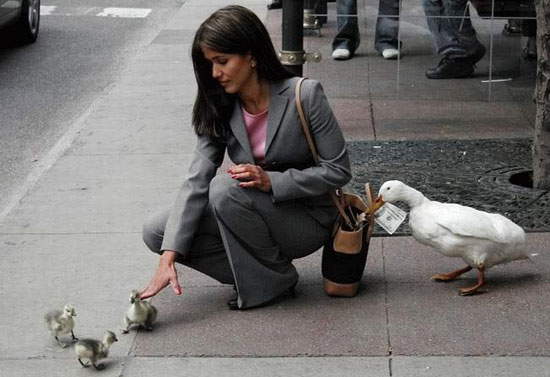When we take a trip abroad, it is always a good idea to leave informed about the destination we are going to visit: we gather information, perhaps from friends who have been to the desired destination before us; we ask a consultant or travel agent for help; we go looking for news on the Internet. One of the first operations, however, has now become consulting the Viaggiare Sicuri website(www.viaggiaresicuri.it), the Foreign Ministry ’s site that gives travel advice on all the countries of the world and provides a lot of news to travelers: for example, what practices are required to enter, what local customs and traditions we must respect, and above all, what risks we may run into.

This site is also often interesting reading for those who do not have to travel but still want to find out what is happening in certain parts of the world. However, we at Finestre Sull’Arte asked ourselves a question: how do ministerial sites in other countries that give travel advice to their users view Italy and what advice do they give to their citizens who want to visit our country? We went to visit some of these sites, and we discovered many interesting things: some paintItaly a tad stereotypically, some just give sensible advice, and some exaggerate a bit (perhaps even too much), but there is certainly material to think about. Let’s start with the United Kingdom, whose main concerns include natural disasters: the first of those included is MountEtna (a bit like the famous scene from Johnny Stecchino), and then come earthquakes, which are described as an almost daily occurrence:
Mount Etna has been erupting with increasing frequency sending plumes of ash into the air. Monitor local media and contact your airline if you are concerned about possible disruption to flights. There is low-intensity volcanic activity on the island of Stromboli. [...] Many parts of Italy lie on a major seismic fault line. Minor tremors and earthquakes are almost a daily occurrence.
Mount Etna has been erupting with increasing frequency throwing plumes of ash into the air. Check local media and contact your airline if you are concerned about a possible cancellation of your flight. There is low-intensity volcanic activity on the island of Stromboli. [...] Many areas of Italy are right on a major earthquake fault. Slight tremors and earthquakes occur almost daily.
(Gov.uk - United Kingdom)

The United States of America also worries about natural disasters but, being the good patriots that they are, they also worry about political violence and demonstrations that, though born with peaceful intentions, can turn violent. Nor do they disdain to take a swipe at anarchist movements (after all, you know: on the part of Americans there is often this idiosyncrasy towards anarchists), seen as movements of dangerous bombers, on a par with organized crime, which would also be responsible for bombings... someone warn the U.S. that that bad season has passed, and especially that bombings are hardly a constant risk...
Politically motivated violence in Italy is most often connected to Italian internal developments or social issues. [...] Organized crime and anarchist movements sometimes use firebombs or Molotov cocktails against buildings or offices. [...] Demonstrations may have an anti-U.S. character, especially in areas hosting U.S. military bases. Even demonstrations intended to be peaceful have the potential to turn confrontational and possibly escalate into violence.
In Italy, politically motivated violence is very often linked to social facts inside the country. [...] Organized crime and anarchist movements sometimes use firebombs or Molotov cocktails to hit buildings or offices. [...] Demonstrations can be anti-American in nature, especially in areas that host U.S. military bases. Even demonstrations with peaceful intent can turn into aggressive and violent incidents.
(travel.state.gov - USA)
But let’s turn to Spain, which lashes out at Naples, which is seen as a medium-risk zone (i.e., the same rank assigned to Iraqi Kurdistan or the border between Mauritania and Western Sahara) due to poor security:
La ciudad de Nápoles y sus alrededores padecen un elevado grado de inseguridad que convierte a los turistas y viajeros en frecuentes víctimas de robos. Conviene, por ello, extremar la atención sobre los efectos personales y, en su caso, automóvil, al viajar a la zona.
Tourists and travelers in and around Naples are often victims of theft, so these are high risk areas due to poor security. Therefore, it is advisable to be careful with personal belongings and, in this case, use your car to travel through the area.
(Exteriores.gob.es - Spain)

More moderate, on the other hand, is the advice from Switzerland, which does not give indications about particular cities but merely makes sensible suggestions to prevent travel to Italy from turning into an unpleasant experience (because we know that, unfortunately, these things can happen):
Pickpocketing and muggings happen, particularly in tourist spots and train stations in large cities. Be vigilant and beware of thieves who by their cunning distract tourists in front of ATMs, or on streets and parking lots under the guise of a supposed flat tire. Also there is to show caution in cases of minor accidents or intentionally caused damage, such as breaking a car’s rearview mirror.
(eda.admin.ch - Switzerland)
Here, however, perhaps the situation described by Canada is a tad exaggerated: it seems as if Italian streets are swarmed by throngs of motorized muggers...
If possible, avoid carrying handbags. Motorcyclists frequently grab bags and other personal belongings from pedestrians, often resulting in injury. [...] Be especially vigilant when stopped at traffic lights, as bags are often snatched from passenger seats by thieves traveling on scooters.
If possible, avoid carrying handbags. Motorcyclists often snatch purses and other belongings from pedestrians, who many times sustain injuries. [...] Be especially careful when stopped at traffic lights, because bags resting on the passenger seat are often grabbed by thieves on scooters.
(travel.gc.ca - Canada)
And, speaking of motors: could anyone have missed picking on the less-than-smooth traffic and less-than-exemplary driving behavior of Italian motorists?Australia is on hand to provide information to its citizens:
Driving in Italy can be dangerous and driving conditions can seem chaotic compared to Australia. [...] There are regular pedestrian fatalities throughout Italy. You should exercise particular care when crossing roads, including at controlled pedestrian crossings, as motorists in Italy will often not give way to pedestrians (although they are required to under Italian law).
Driving in Italy can be dangerous and may seem chaotic compared to Australia. [...] Accidents regularly occur in Italy in which pedestrians are the victims. Be especially careful when crossing the street, even if you are in a crosswalk, because motorcyclists in Italy often do not let pedestrians cross (despite being required by Italian law).
(smarttraveller.gov.au - Australia)

And even for France, driving a car in Italy can be a problem, especially for roads in less than optimal condition (the Salerno-Reggio Calabria ’s fame has reached beyond the Alps):
Le réseau routier est bon dans son ensemble. Cependant, l’étroitesse des voies et les méandres sur certaines autoroutes (Salerne-Reggio de Calabre) peuvent les rendre dangereuses en cas de vitesse excessive. Les routes secondaires dont l’entretien n’est pas parfaitement assuré, peuvent réserver des surprises.
The road network in general is good. However, the narrow streets and curves on certain highways (the Salerno-Reggio Calabria) can make it dangerous at excessive speed. Secondary roads where maintenance is not perfectly secured can hold surprises.
(diplomatie.gouv.fr - France)
In short: net of exaggerations, it has to be said that everyone abroad seems to be rather merciless about certain situations that might disturb or harm tourists. And you, what do you think of the advice given abroad about tourists who want to visit Italy?
All translations in this article are by Ilaria Baratta
Warning: the translation into English of the original Italian article was created using automatic tools. We undertake to review all articles, but we do not guarantee the total absence of inaccuracies in the translation due to the program. You can find the original by clicking on the ITA button. If you find any mistake,please contact us.